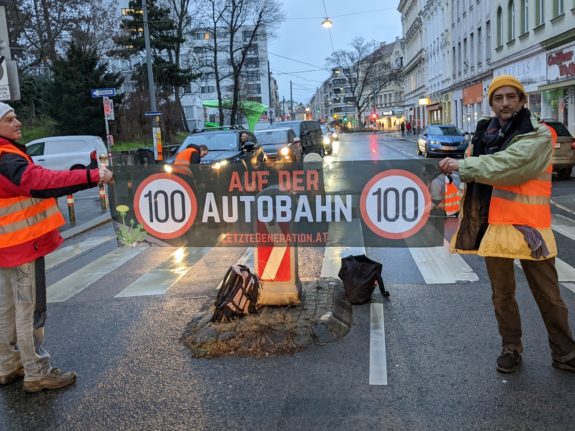Here are some of the most important changes set to come into effect in July 2021.
Coronavirus measures
Austria’s latest wave of Covid measures relaxations came into effect on July 1st.
Rules relating to masks, nightlife, events and groups will be relaxed.
Only a few measures will remain, including the 3G Rule – which requires people to prove they have been vaccinated, tested or recovered from Covid in order to take part in most activities.
An extensive list of the new measures can be found at the following link.
IN DETAIL: How Austria will relax coronavirus measures from Thursday
Not all the relaxed measures apply in Vienna, including the FFP2 mask requirement and rules relating to testing and children. Click here for a list of the relevant measures in Vienna.
Vienna to keep in place stricter coronavirus measures: What you need to know
The Austrian government wants to relax the rule which requires people to give their contact details when visiting restaurants on July 22nd, although Vienna has indicated it will keep this rule in place.
Rules for visiting Austria
The rules for visiting Austria have been relaxed as of July 1st.
This is particularly relevant for people from outside of Europe, including Americans, who are again allowed to enter.
Only people who are deemed to be immune to the virus can enter Austria.
Arrivals can show this by being consistent with the so-called ‘3G rule’.
This rule states that those who have been vaccinated, along with those who have recently recovered from the virus and who have tested negative, can enter Austria.
Click the following link for more information:
UPDATED: What are the rules for entering Austria right now?
EU digital Covid pass launches
This digital ‘travel pass’ should make things a little easier if you’re venturing out of the country.
Officially the EU’s Covid-19 certificate, as it’s properly known, launches across the bloc on July 1st.
From that date, people who can show they are fully vaccinated can travel anywhere within the EU or Schengen zone without needing to follow certain health measures, such as quarantining or testing. But note that strict measures remain in place for ‘virus variant’ countries, which currently includes Portugal.
Slightly confusingly, some nations already accept it. On Thursday, June 24th, Norway eased regulations to allow visitors from 12 EU countries to travel using the EU Covid certificate. For the rest, it will be available from July 1st.
Along with Austria, the EU pass will soon be valid in countries such as Belgium, Bulgaria, Cyprus, Croatia, Denmark, Estonia, Finland, France, Germany, Greece, Hungary, Ireland, Italy, Latvia, Lithuania, Luxembourg, Netherlands, Poland, Portugal, Czech Republic, Romania, United Kingdom, Slovakia, Slovenia, Spain, Sweden, as well as Switzerland, Iceland, Liechtenstein, Norway.
New EU VAT rules for imported goods
Imported goods with a value of €22 or less used to be exempt from tax, but this condition will be scrapped on July 1st across the EU.
This means all goods arriving into Austria and other EU countries from non-EU countries will be subject to VAT, regardless of their value.
This EU-wide regulation will particularly affect businesses that import goods from outside of the bloc and people who shop online on international websites such as China’s AliExpress.
If the goods cost more than €150 (not including transport, insurance and handling charges) you will also have to pay customs duty.
If businesses don’t register with the The Import One-Stop Shop (IOSS), the VAT will be paid by the customer when importing the goods into the EU.
Postal or courier companies may charge the customer an additional clearance fee to collect this VAT and carry out the necessary procedures when importing the goods.
Official information is available here.
Brexit means Brexit
As of July 1st, if you are driving in Austria on your British licence you are technically driving without a licence.
People who became legally resident in Austria before Brexit and have a British driving licence should note the deadline for exchanging their British licence for an Austrian one was June 30th, 2021.
Under Austrian law, you are required to change your driving licence over after a maximum of six months in the country.
According to the Article 50 Rules, this means that June 30th is the relevant date for switching over, as it is six months from the Brexit deadline.
There are potentially serious fines or insurance consequences for those who have not changed over their licence in time. Read the following link for more information.
Standard consumption tax (NoVa) for cars to increase
The NoVa tax which applies to almost all new car purchases will increase in July 2021 – and will continually increase up until 2024.
The amount you will pay varies depends on the purchase price and the type of car, but is higher on larger cars.
For motorcycles, the percentage of NoVa tax will increase from 20 to 30 percent.
More detailed information is available at the following link.
New rules for short-time working/Kurzarbeit/Furlough
Austria’s furlough scheme will also change from July 2021, with the rules expiring at the end of June.
Short-time work will now receive a reduced level of funding, which is 15 percent lower than the previous rate.
In sectors that are deemed to be particularly affected by the pandemic, this will not change. More info is available here.



 Please whitelist us to continue reading.
Please whitelist us to continue reading.
Member comments